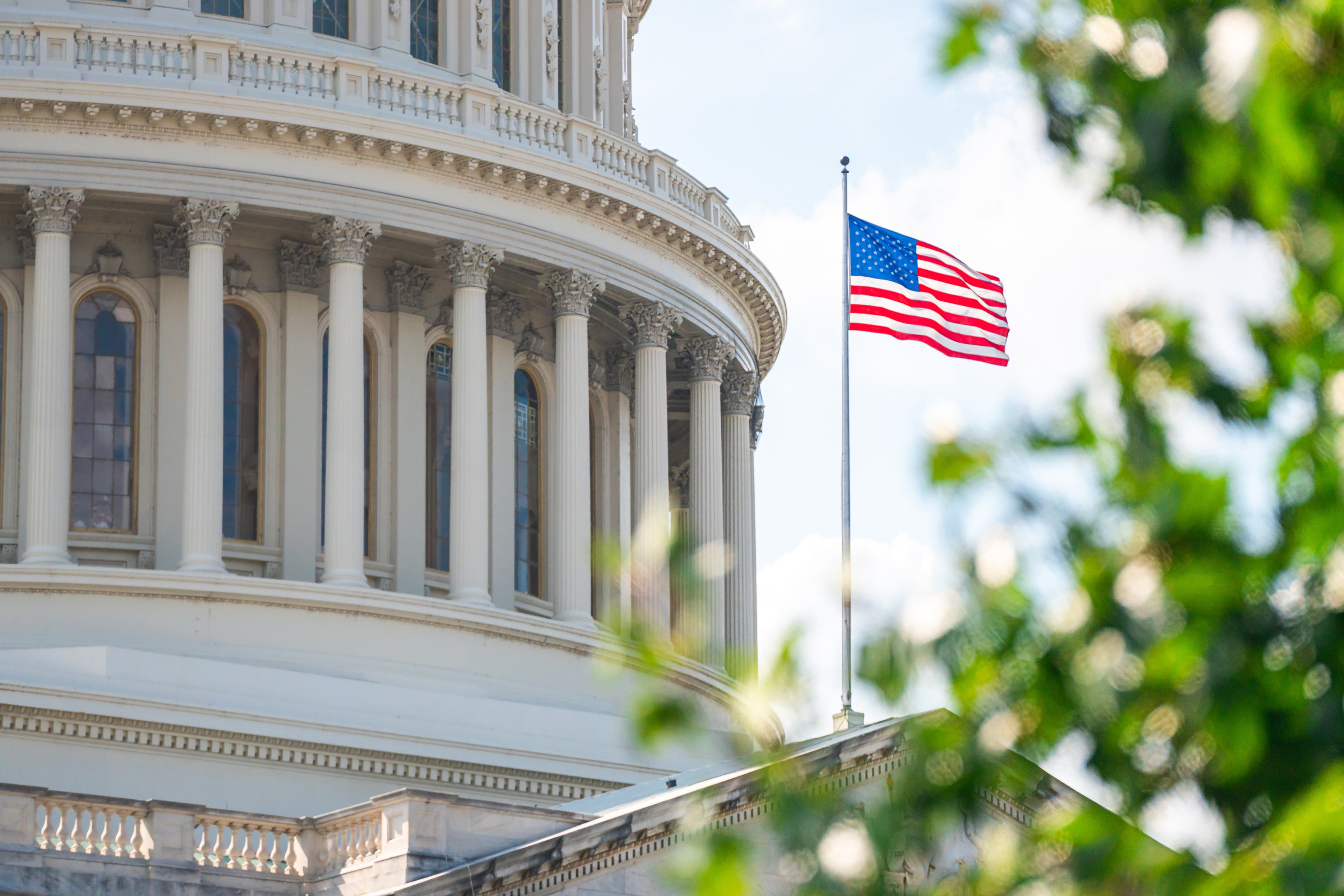H-1B Visa Fee 2025: Strategic Insights for Legal & Compliance Hiring Managers
September 2025
H-1B Visa Fee 2025: Strategic Insights for Legal & Compliance Hiring Managers

Key Takeaways for Legal & Compliance Hiring Managers
- A new $100,000 one-time fee applies to new H-1B visa petitions filed from outside the U.S. starting September 21, 2025.
- Renewals and current visa holders are exempt from the fee.
- Legal challenges are underway, and policy details may evolve.
- Hiring managers should examine current international hiring strategies and monitor regulatory updates.
- National interest exemptions may apply, but criteria remain unclear.
On September 19, 2025, a presidential proclamation introduced a $100,000 fee for new H-1B visa applications submitted from outside the United States. This change, effective for one year starting September 21, 2025, excludes renewals and current visa holders but presents new challenges for legal and compliance hiring managers.
Legal departments often rely on international talent for roles in regulatory affairs, data privacy, and cross-border governance. The new fee may increase hiring costs, reduce access to global candidates, and disrupt mobility strategies. Organizations must now evaluate their workforce planning and visa strategies to remain compliant and competitive.
Implications for Legal & Compliance Hiring
Legal teams often rely on international professionals for roles in regulatory affairs, data privacy, and cross-border governance. The new fee may increase costs for hiring overseas candidates, particularly for mid-level or technical roles. However, many firms are already adapting by:
- Prioritizing candidates already authorized to work in the U.S.
- Strengthening relationships with law schools and compliance training programs
- Investing in internal mobility and upskilling initiatives
These shifts not only help mitigate cost, but also build more resilient and future-ready legal teams.
Explore our Legal Recruitment Services to learn how we support clients navigating talent strategy in a changing regulatory landscape.
What’s Still Evolving
While the fee is active, several details remain subject to further rulemaking. These include how exemptions will be evaluated, what documentation will be required, and how changes to prevailing wage levels may affect compensation benchmarks.
Legal challenges to the proclamation are also underway, and it’s possible that courts may modify or delay aspects of the policy. For now, hiring managers should stay informed and flexible, ensuring their teams are prepared to respond to updates as they emerge.
Stay informed through official government sources including U.S. Citizenship and Immigration Services and White House and Government Agencies such as Department of State and Department of Labor.
For ongoing legal commentary, visit the National Law Review’s H-1B coverage.
Looking Ahead: Opportunities to Strengthen Your Talent Strategy
While the introduction of the H-1B visa fee presents new considerations, it also offers a timely opportunity for legal and compliance leaders to take a more strategic approach to workforce planning. Rather than viewing this change as a constraint, many organizations are using it to future-proof their hiring strategies and build more resilient legal teams.
If your team is reviewing its talent plans, here are four proactive steps to consider:
1. Reassess Current and Upcoming Hiring Needs
Assess roles that have traditionally relied on international talent and evaluate whether timelines, budgets, or sourcing strategies need to be adjusted. This is a chance to align hiring plans with broader business goals and ensure continuity across legal functions.
2. Strengthen Academic and Industry Partnerships
Building relationships with law schools, compliance training providers, and professional associations can help expand access to emerging talent. These partnerships also support long-term pipeline development and brand visibility among future legal professionals.
3. Invest in Internal Talent Development
Upskilling existing team members and creating clear career pathways can reduce dependency on external hires and improve retention. Whether through mentorship, certifications, or cross-functional training, internal development is a powerful lever for growth.
4. Align Mobility Strategy with Business Objectives
Review how your organization supports internal mobility across offices and regions. Encouraging cross-border collaboration and leveraging talent already based in the U.S. can help maintain agility while navigating external policy changes.
For more insights on building high-performing legal teams, visit our Industry Insights hub, or explore how our Legal Recruitment Services can support your hiring goals.
Conclusion: Navigating Change with Confidence
The introduction of the H-1B visa fee marks a shift in how legal and compliance teams approach international hiring. While the policy introduces new considerations, it also opens the door to more strategic, future-focused workforce planning.
By staying informed, engaging cross-functional teams, and investing in domestic talent, organizations can maintain continuity and competitiveness in their legal functions.
Need support adapting your hiring strategy?
Request a call back from Larson Maddox to speak with a specialist about your legal and compliance hiring needs.
Legal & Compliance Recruitment FAQs: H-1B Visa Fee 2025
Positions in cross-border governance, regulatory compliance, data privacy, and international trade law are most affected, as they often rely on globally trained professionals who may require visa sponsorship.
Not necessarily. While the fee adds complexity, roles requiring niche international expertise may still justify the cost. Managers should assess ROI, explore exemptions, and consider hybrid or remote models to retain global talent.
Partnering with law schools, offering compliance certifications, and investing in internal upskilling programs are all strategies that can help reduce reliance on international hires and build long-term workforce resilience.
Stay agile by monitoring legal developments, maintaining flexible sourcing strategies, and building talent pools that include both domestic and international candidates. Scenario planning can help mitigate disruption.
